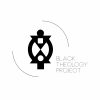The Millennial Womanism Project (TMWP) Presents “Millennial Womanists To Watch”
A monthly profile highlighting emerging voices doing incredible work in ministry, the academy and in social justice work.
Name: Leah Jordan
Age: 29
City: Fort Worth, Texas
TMWP: What does it mean to be a millennial woman of African descent in ministry?
Leah Jordan: This means that I have the task of teaching other millennials about hermeneutics. It is important to me that people my age, especially outside of the academy, learn how to interpret biblical texts through the African-American experience and their own individual context. I want them to see themselves in the text. One of my favorite stories is about the woman who anoints Jesus feet with fragrant oil and wipes them with her hair in John 12. I ask how that experience must have impacted her life and what happens when that same oil gets on black folks’ hair? What does it mean for young black people to walk around smelling like hair products and cocoa butter? Ministry for me means letting young black people know that the way they show up in the world is already holy. They are worthy of love and they smell like they have been at the feet of Jesus.
TMWP: Tell us about your work. What inspired you to do this work?
Leah Jordan: Theological imagination is most important in my work. In my sermons and in the stories that I write, I use fictional narrative and humor to stretch imagination and bring social critique. Through preaching and writing, I work to expand what people are able to imagine about God, themselves, and their community. I also use film and television shows to communicate theology and spirituality to young adults. Film, television, and comedy have always functioned as scripture in my life and I feel inspired to share the theological perspectives that those art forms have given to me with the world.
TMWP: How does your work expand traditional womanist epistemologies?
Leah Jordan: Traditional womanist epistemologies already help us to imagine things that bring us into wholeness. My work only makes womanism accessible in new spaces and for a new generation. Through my own womanist imagination, I was able to meet God as a black woman who loves music and dance and the moon. Because there was space in womanism for the things that were already sacred to me, I knew there was space for me. If there is space for me, then there is room for so many other young women that I know.
TMWP: What can we expect from you within the next year?
Leah Jordan: Within the next year, I will have completed my Th.M. thesis at Brite Divinity School. I am writing about the relationship between preaching and the womanist imagination. I also plan to begin publishing short stories and other works of fiction.
TMWP: How can people support your work?
Leah Jordan: For now, just come say hello. Please feel free to add me on facebook. I love connecting with other young adults, scholars, ministers, and womanists.
TMWP:. Where can they go for more information and updates?
Leah Jordan: (mostly on fb) but twitter and ig are both @brendasgtababy
Millennial Womanism is an emerging concept developed by Liz S Alexander and Melanie C Jones that seeks to draw upon a unique womanist epistemological and methodological framework utilizing a millennial lens.



Facebook Comments